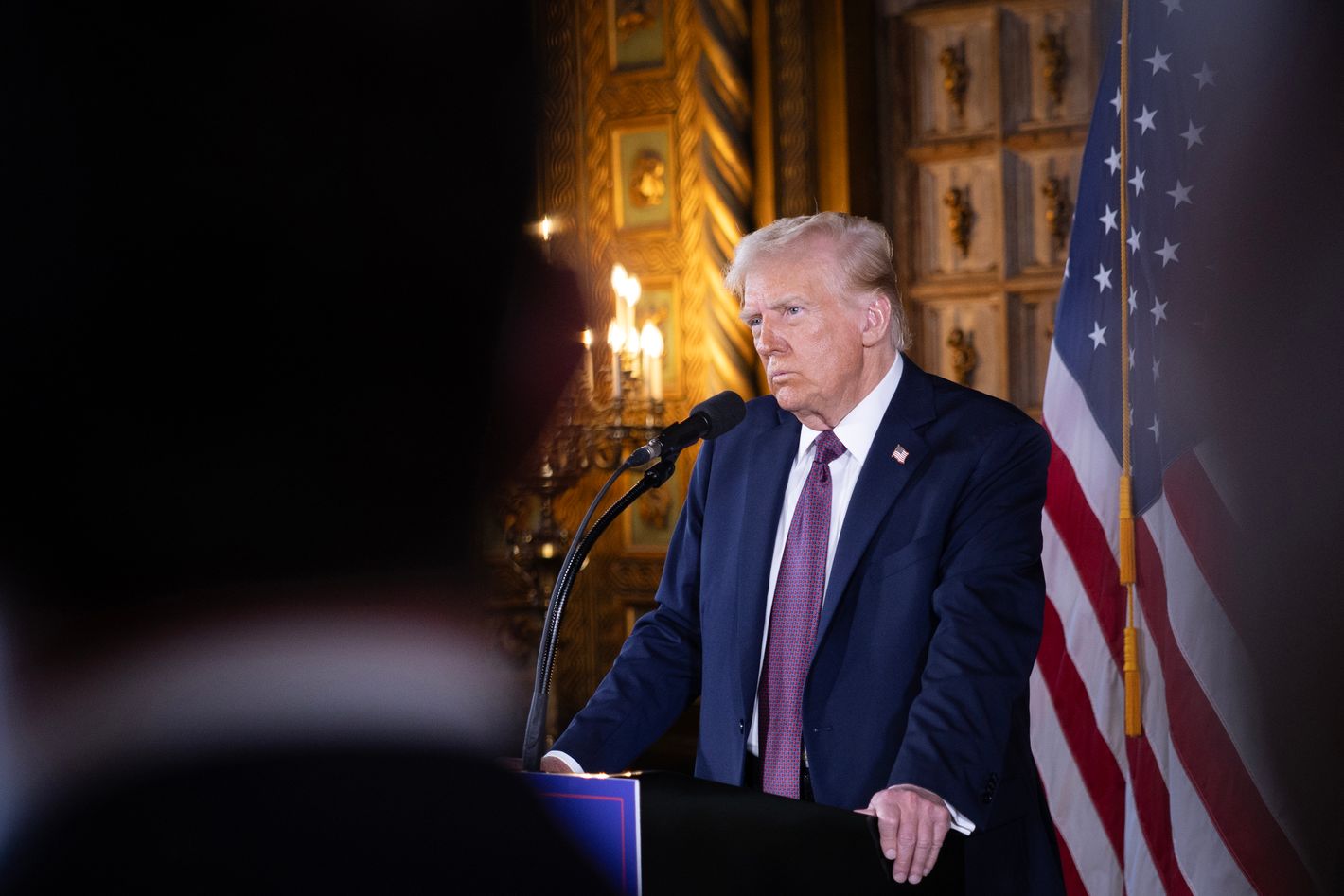Photo: Scott Olson/Getty Images
We all know that the ritual of a presidential inauguration is a really big deal to Donald Trump. After all, he obsessed for years about attendance levels at his first ceremony in 2017, fearful and angry that some people might get away with doubting the magnificence of the event and the enormous, unprecedented size of the adoring audience. Now his second and presumably final inauguration is about to occur, and there are signs the 47th president could wind up as frustrated as the 45th about perceptions of his moment of apotheosis.
First, there will be a visible pall on the Trump celebration, thanks to two of his Democratic predecessors. The 39th president, Jimmy Carter, died on December 29, which enabled the 46th president, Joe Biden, to declare a 30-day period of mourning until January 29 (which is absolutely what every precedent would suggest). So American flags all over the country, including Washington, D.C., will be at half-staff on Inauguration Day. And Trump is very unhappy about it, as USA Today reported:
President-elect Donald Trump has lashed out over flags being flown at half-staff during his upcoming inauguration. …
“The Democrats are all ‘giddy’ about our magnificent American Flag potentially being at ‘half mast’ during my Inauguration,” Trump said in a post on Truth Social, incorrectly using the term that refers to flags being flown halfway up the mast on a ship, not a flag pole. “They think it’s so great, and are so happy about it because, in actuality, they don’t love our Country, they only think about themselves.”
Without much question, the president-elect is a globally acknowledged expert on thinking about oneself, as his lack of interest in offering Carter the traditional honors indicates. But he has no power to raise flags until he’s taken the oath of office, grumble and whine as he might.
Now it’s beginning to become apparent that Trump is going to suffer another indignity on January 20, when he should be basking in his renewed status as national sun king. As Politico reports, people around Trump foolishly told him that he might get all or most of his Cabinet designees confirmed by the Senate by day one:
With less than two weeks until Donald Trump takes the oath of office, only a small handful of his nominees appear on track for immediate confirmation — sparking tensions between the Senate GOP and Trump’s inner circle.
At a private lunch on [January 8], Republican senators discussed whether they should — or even could, under law and Senate rules — advance Trump nominees without final FBI background checks, financial disclosures and other paperwork, according to a person in the room. …
The internal debate surrounds what has become an obsession for the president-elect and his top allies.
Turns out the fond hope of a day-one Cabinet had a lot to do with the surprising speed with which Trump named his nominees. But now reality is intruding, along with such messy and inconvenient factors as background checks and — ahem — senatorial prerogatives, Politico notes:
Senate Judiciary Chair Chuck Grassley (R-Iowa) said a planned hearing for Trump’s attorney general pick, Pam Bondi, could be pushed back due to a delayed FBI background check. The Senate Intelligence Committee has not yet received a pre-hearing questionnaire from Director of National Intelligence designee Tulsi Gabbard, according to a person familiar with her confirmation, complicating plans to hold her hearing next week. (A spokesperson for Gabbard, Alexa Henning, said she is “working in lockstep” with the panel.)
Senate HELP Chair Bill Cassidy (R-La.) said much the same Tuesday about Education secretary pick Linda McMahon: “It really depends on us getting paperwork,” Cassidy said about the timeline. “Right now the hold seems to be on their side.”
Beyond that, the Senate is a sluggish beast, and speeding things up requires some cooperation from the despised minority party, as Punchbowl News observes:
Thune and Senate Minority Leader Chuck Schumer are already in talks over who could be confirmed on Trump’s first day in office. Sen. Marco Rubio (R-Fla.), the secretary of state nominee, is seen as the likeliest, according to leadership sources in both parties. But it’s unclear who — if anyone — makes the list after that.
Senate Republicans can only confirm nominees on Inauguration Day if all 100 senators agree to a quick vote. Absent that, the nominees would need to go through regular order, which takes several days.
Trump himself didn’t help things by the identities of some of his nominees, particularly in the national-security space, where quick confirmations seem most likely:
Senate GOP leaders also want to prioritize national security nominees, but as we noted last week, those are some of Trump’s most controversial picks. And even if any of those are ready by Jan. 20, it’s difficult to see Democrats agreeing to fast-track their confirmation votes.
All in all, Inauguration Day may not be exactly the glorious moment of complete gratification that Trump might have imagined during his years of exile from the White House. If so, Lord help those who have to deal with him that day, particularly if the crowd-size estimates come in low.

